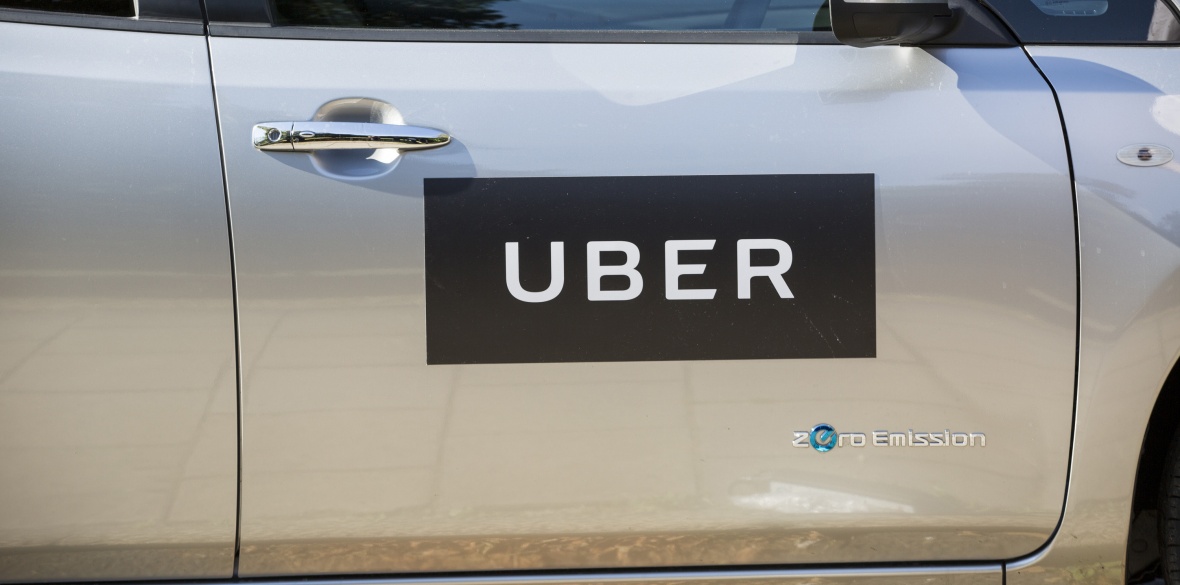UBER drivers’ historic win in the Supreme Court, which ruled today that they were not self-employed, is a victory for trade union organising.
Though the number of drivers who pressed the case is small, 35, the ruling can have dramatic consequences across Uber’s thousands-strong workforce and beyond.
Trade union GMB now plans to consult its members at the company — a “ride-hailing app” as it styles itself, but a taxi and courier firm in reality — over the compensation they are due for having been denied the rights of regular employees. Lawyers Leigh Day estimate that this could amount to £12,000 per worker.
If the sum sounds sizeable, that reflects the robbery over years of workers denied sick pay, holiday pay and proper breaks — and forced to work inhuman hours to make ends meet as a result.
Uber has fought against defining its drivers as workers every step of the way, refusing to accept defeats at the Central London Employment Tribunal (2016), the Employment Appeal Tribunal (2017) or the Court of Appeal (2018).
Only workers organised in a trade union could possibly have continued fighting a company with such deep pockets over the period.
Its defeat at the Supreme Court should be final, though Uber’s response to the ruling — to stress that it “focused on a small number of drivers who used the Uber app in 2016” while talking up changes it has made since that give drivers “even more control over how they earn” — suggests the battle is not over.
Consolidating the win and extending it to other workers in the huge “gig economy” is a task for the whole labour movement. Millions of workers in Britain are exploited on bogus self-employment arrangements, agency contracts that allow their real employer to dodge responsibilities and insecure contracts that deny them their rights and a regular income.
Alongside the increasingly repressive trade union legislation from the Thatcher era onwards restricting working people’s legal rights to bargain collectively or withdraw their labour, casualisation has been a major means of rolling back the rights won by organised workers in this country.
Classic achievements of the labour movement, from holiday and sick pay to weekends and that totemic demand of early trade unionists, the eight-hour day, are now as out of reach for many modern workers as they were for their 19th-century forebears.
The Bureau of Investigative Journalism has exposed the rampant abuse of workers at delivery giant Amazon, which uses employment agencies to dissociate itself from the zero-hours contracts and multiple employer abuses, including numerous cases of underpayment or late payment of wages, that characterise its super-exploited workforce.
Rapidly rising unemployment as a result of inadequate government support for sectors affected by the pandemic gives bosses an opportunity to accelerate the casualisation drive.
But casualisation costs lives. Even test-and-trace supremo Dido Harding, the failed TalkTalk exec, handed control of our public health response because of her Tory connexions, has acknowledged that many people fail to isolate when advised to because they cannot afford to take time off work.
We now learn that women working in Britain’s garment factories are four times more likely to die from Covid-19 than the average female worker — an indictment of sweatshop conditions in the sector. Outbreaks of Covid-19 in Leicester garment factories last year made the city an early hotspot of the second wave, further evidence of the role a deregulated labour market plays in undermining public health.
Keir Starmer’s reset speech this week talked of structural injustices that made Britain especially vulnerable to the pandemic. Insecure work is one of the most pressing.
But as the years-long Uber court case shows, tackling it means organised labour confronting the power of employers, not trying to bury their differences in talk of “partnership” with businesses who find a loophole in every pledge they make.












